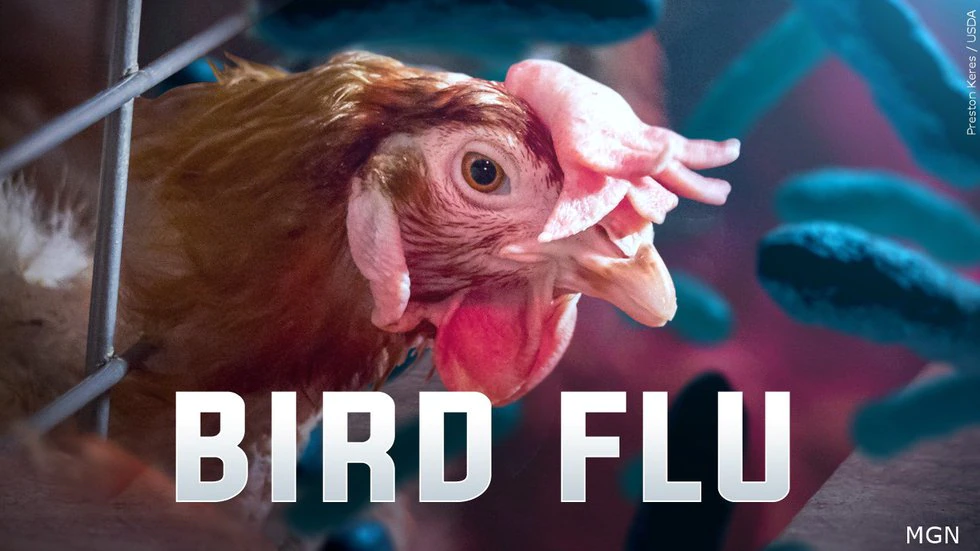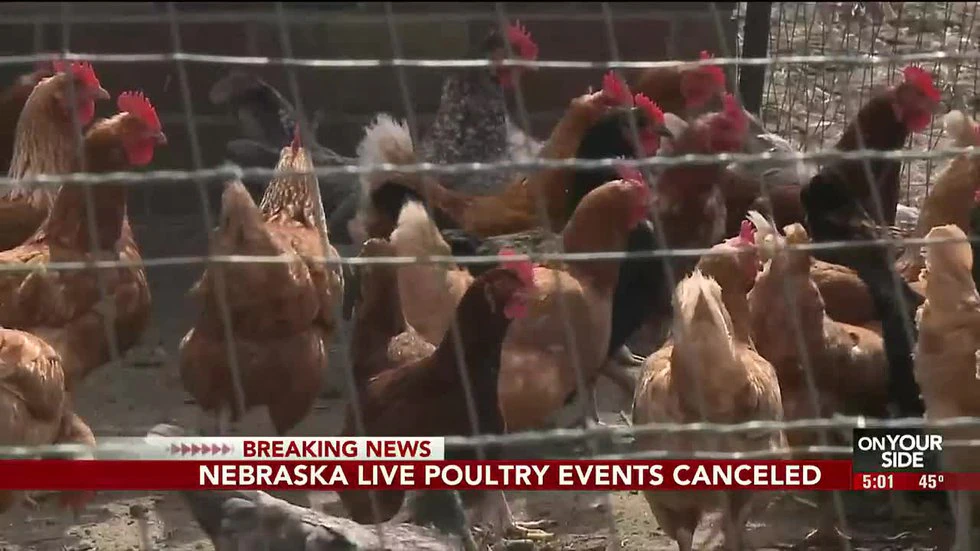One human and more than 37 million birds—comprised mostly of poultry across 172 commercial flocks and 119 backyard flocks in 34 states—have been been affected in the current avian influenza outbreak.
The Centers for Disease Control and Prevention announced in April 2022 that a Colorado man was the first reported U.S. citizen to have contracted the H5N1 virus during the current outbreak. The patient was an inmate at a state correctional facility whose pre-release employment program involved the depopulation, or killing, of poultry at a commercial farm in Montrose County. His only symptom was fatigue, and he has since made a complete recovery.
Stacker compiled statistics on the avian influenza in Nebraska using data from the U.S. Department of Agriculture. The data is current as of May 9. According to the USDA, the affected count captures the total number of birds on the premises where the H5N1 virus was detected. Although it is possible that not every bird was carrying the virus, all birds within an affected population are culled to prevent further spread.
Impact from state to state varies based largely on the number of commercial operations within each state. In Ohio, just one backyard flock and 20 birds were affected. In neighboring Pennsylvania, close to 4 million birds have been destroyed. Worse still, Iowa, which had the highest number of chickens of any U.S. state in 2021 with 60 million heads, has been the most severely impacted in terms of quantity, losing a little more than 13 million birds since the virus was first reported in a commercial turkey flock in Indiana in February 2022.
The impact of the outbreak is being felt by many Americans at the grocery store. According to the USDA’s Food Price Outlook for April 2022, poultry prices are predicted to increase between 7.5% and 8.5%, and egg prices are predicted to increase between 6% and 7% due, in part, to decreased production at some of the country’s biggest commercial flocks.
Read on to learn more about how the current avian influenza outbreak is affecting wild and commercial birds in your state.
– Number of birds affected in Nebraska: 4.9 million
— #2 most birds affected among all states
— 12.9% of all birds affected nationwide
Counties with the most birds affected in Nebraska
#1. Knox: 2.1 million birds affected (43.7% of all cases in Nebraska)
#2. Dixon: 1.7 million (36.0%)
#3. Butler: 987,000 (20.3%)
#4. Merrick: 90 (0.0%)
#5. Holt: 50 (0.0%)
#6. Washington: 50 (0.0%)
#7. Scotts Bluff: 30 (0.0%)
States with the most birds affected
#1. Iowa: 13.4 million
#2. Nebraska: 4.9 million
#3. Pennsylvania: 3.9 million
#4. Wisconsin: 3.0 million
#5. Minnesota: 2.9 million
You may also like: Most valuable crops grown in Nebraska











